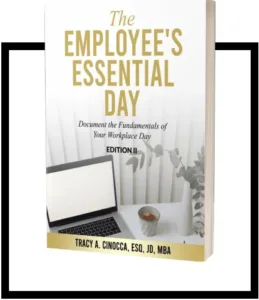The Employee’s Essential Day Journal
The Employee’s Essential Day Journal: A Must-Have Tool for Employees and Employers to Track Daily Work Events Empowering Employees: Introducing “The Employee’s Essential Day” At Cinocca Law, we’re committed to empowering employees and ensuring their rights are protected in the workplace. Today, we’re excited to announce a powerful new tool in this mission: “The Employee’s […]
The Employee’s Essential Day Journal Read More »

